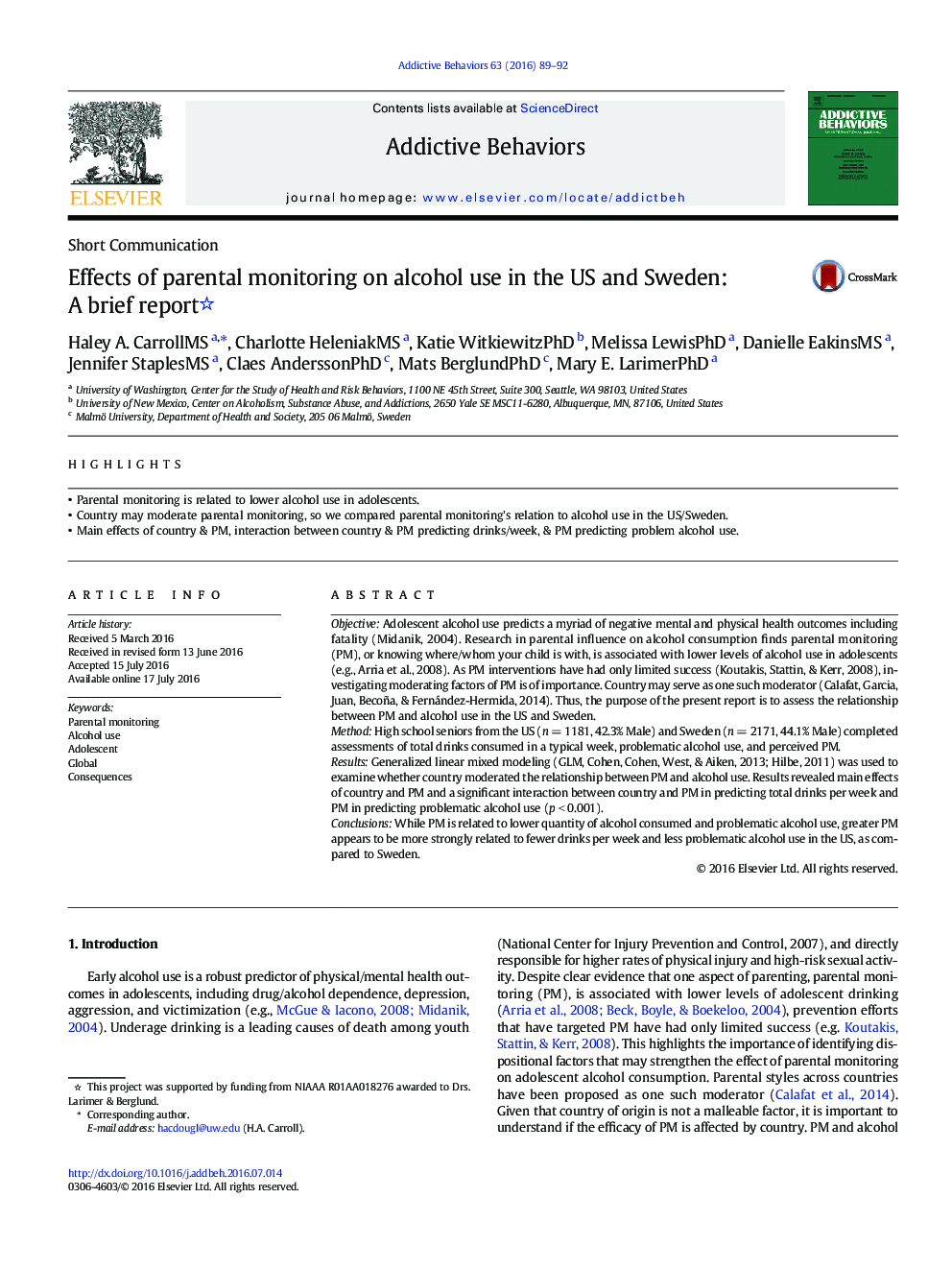| Article ID | Journal | Published Year | Pages | File Type |
|---|---|---|---|---|
| 898579 | Addictive Behaviors | 2016 | 4 Pages |
•Parental monitoring is related to lower alcohol use in adolescents.•Country may moderate parental monitoring, so we compared parental monitoring's relation to alcohol use in the US/Sweden.•Main effects of country & PM, interaction between country & PM predicting drinks/week, & PM predicting problem alcohol use.
ObjectiveAdolescent alcohol use predicts a myriad of negative mental and physical health outcomes including fatality (Midanik, 2004). Research in parental influence on alcohol consumption finds parental monitoring (PM), or knowing where/whom your child is with, is associated with lower levels of alcohol use in adolescents (e.g., Arria et al., 2008). As PM interventions have had only limited success (Koutakis, Stattin, & Kerr, 2008), investigating moderating factors of PM is of importance. Country may serve as one such moderator (Calafat, Garcia, Juan, Becoña, & Fernández-Hermida, 2014). Thus, the purpose of the present report is to assess the relationship between PM and alcohol use in the US and Sweden.MethodHigh school seniors from the US (n = 1181, 42.3% Male) and Sweden (n = 2171, 44.1% Male) completed assessments of total drinks consumed in a typical week, problematic alcohol use, and perceived PM.ResultsGeneralized linear mixed modeling (GLM, Cohen, Cohen, West, & Aiken, 2013; Hilbe, 2011) was used to examine whether country moderated the relationship between PM and alcohol use. Results revealed main effects of country and PM and a significant interaction between country and PM in predicting total drinks per week and PM in predicting problematic alcohol use (p < 0.001).ConclusionsWhile PM is related to lower quantity of alcohol consumed and problematic alcohol use, greater PM appears to be more strongly related to fewer drinks per week and less problematic alcohol use in the US, as compared to Sweden.
